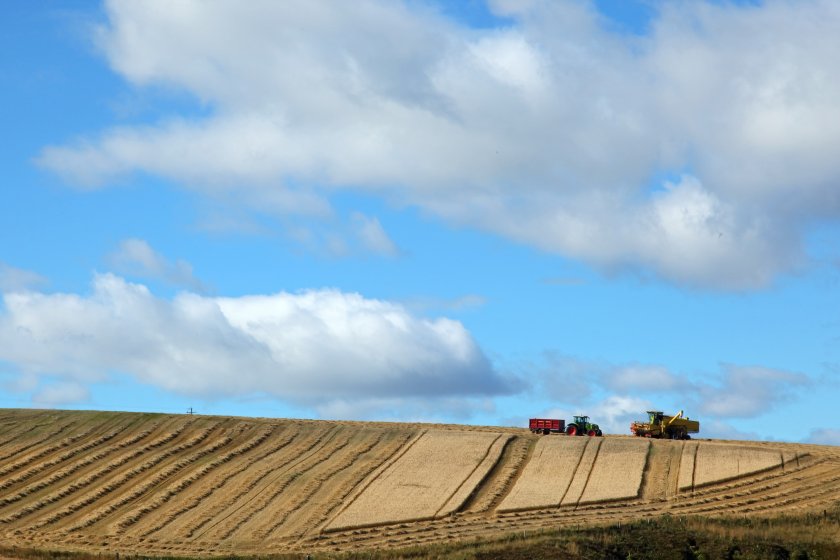
Scottish arable land values continued to rise in 2023, while the price of upland pasture suitable for afforestation fell back as forestry investors became more selective.
Analysis of data from the past 12 months shows that the Scottish farmland market performed well in 2023, despite higher interest rates, poor weather and lack of clarity about the future of farm support.
The average value of prime arable land on the east coast of Scotland is estimated to have increased to approximately £10,000/acre, compared with an estimated £9,500/acre in 2022.
However, there was a noticeable shift in the prices being paid for farmland suitable for afforestation.
Douglas Orr, farm agent for Strutt & Parker in Scotland, said land values had increased in 2023, albeit by a smaller amount than in previous years.
"The main exception is upland pasture suitable for afforestation, where in some instances, the prices offered were 40% lower than those seen at the peak of the market.
"This has happened as forestry investors have become stricter with their investment criteria and are carrying out more due diligence ahead of any purchase.”
The average value of upland suitable for tree planting is currently around £3,500-£4,000/acre, compared with £5,500/acre in 2022.
However, such land still commands a premium above traditional agricultural values, Strutt & Parker's new analysis shows.
A total of 26,200 acres were launched on the open market in 2023, down 36% on 2022 levels but only 7% below the five-year average.
Off-market sales continue to be popular with some of the largest Scottish transactions of recent times going under offer or completing privately in 2023.
Strutt & Parker says that demand has been good, with arable and mixed farms the most sought after.
Farmers continue to be the main buyer of farms and farmland, which contrasts with England where non-farmers accounted for more sales than farmers in 2023.
“The majority of buyers are farmers looking to expand their acreage, reinvest profits and improve their farming businesses,” explained Mr Orr.
"However, agricultural land does continue to be perceived as a safe investment for other investors for tax, capital growth, amenity, lifestyle and environmental reasons.”
Looking ahead, Strutt & Parker says higher interest rates have inevitably resulted in a cooling of demand and forced some buyers to pull out of purchases because they can no longer afford to service the debt.
Mr Orr concluded: “That said, we also know there is a considerable pool of cash buyers – including farmers – who are keen to buy land.
"However, overall, our expectation is that the market will continue to contract in 2024 with prices levelling off until the fiscal outlook improves.”
